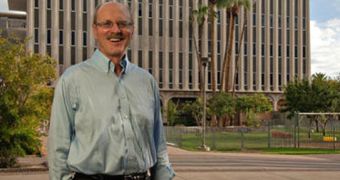Officials at the Arizona State University are proud to announce the Learning Sciences Institute (LSI), a new facility in which investigators from a number of disciplines will promote well-being in educational, work and family settings as well as improved learning.
It wasn't until the 1990s that learning sciences became an actual discipline, which means that this field of research is very young. ASU wants to be at the forefront of this area of investigations with the LSI.
The main objective is focusing on the scientific understanding of learning, which is something that, oddly enough, has not been done before in an organized manner.
The end goal is designing, developing and implementing innovative instructional methods, that would improve learning for schools and college students.
In charge of the ASU Institute will be the Dunn Family Professor of Educational and Psychological Assessment in the Department of Special Education at the Vanderbilt University, Dr. Stephen N. Elliott.
“Dr. Elliott possesses the combination of research expertise, creativity and collaborative skills needed to ensure that the institute succeeds in promoting positive learning outcomes in a variety of settings,” says Michael M. Crow, the president of ASU.
“Under his leadership, the Institute will advance the learning sciences from a variety of perspectives, including education, biology, cognitive science, computer science, psychology, anthropology, sociology, advertising, engineering and marketing,” the official adds.
When Elliot takes over, he will also be appointed in the ASU Mary Lou Fulton Teachers College and the School of Social and Family Dynamics, officials at the university add.
“Challenging questions about how to measure and improve human learning require teams of investigators with expertise about human abilities, schools, families, technology, social dynamics, public policy, economics, health and more,” Elliott believes.
“Arizona State University, and soon the Learning Sciences Institute, are places where asking and answering questions that require interdisciplinary research happen on a daily basis,” he goes on to say.
The LSI will not only investigate learning in the young, but also in seniors. This may in turn lead to the development of better learning tools and environments, that would ensure the elderly can keep on exercising their brains.
This has been associated with reduced risks of developing forms of dementia such as Alzheimer's disease, so there is an added health benefit to this as well.
“Inventing new ways to maximize learning is an important concern whether helping a first-grader translate letters to sounds or helping an older adult follow instructions for installing new computer software,” Elliot says.
“Better understanding of how people of various ages and abilities learn leads to better design of learning environments and tools. The collective result is a society that is more informed, more efficient, and more adaptable,” he concludes.

 14 DAY TRIAL //
14 DAY TRIAL //